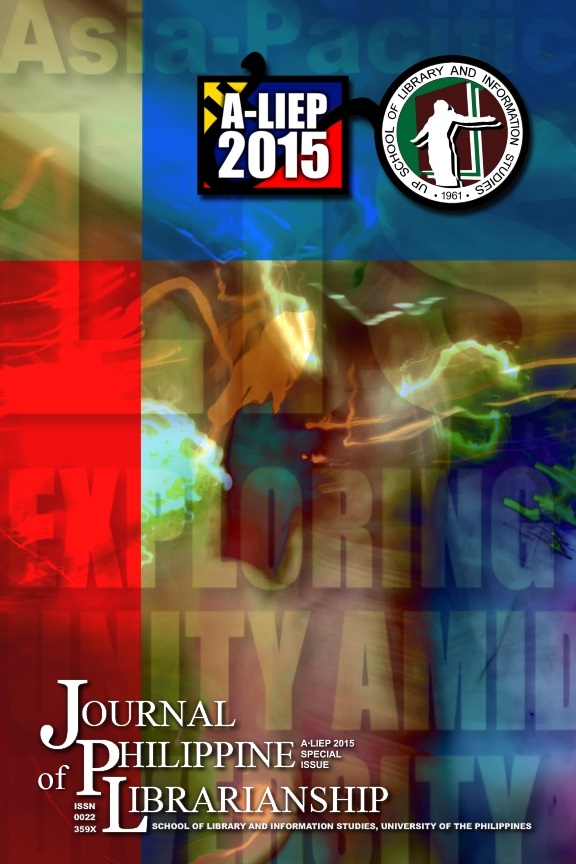EMBEDDING STANDARDS FOR MEDICAL AND HEALTH LIBRARIES IN THE PHILIPPINES: IDENTIFYING CHALLENGES AND OPPORTUNITIES
Abstract
Medical Librarianship is a service profession and is one of the most diverse non-traditional career paths available. It is an integral part of the health care team with direct impact on health and patient care quality. The focus of medical librarians is to put emphasis on the use of evidence based research and practice since most of them are applied where health information is needed. The standards for medical librarianship were already a subject of interest before 1950’s. The purpose of this study is to monitor the preparedness of medical and health libraries in the Philippines prior to the approval of the standards by the Professional Regulation Commission (PRC). Specifically, it sought to answer the following: (1) What types of medical and health libraries are following the 2007 standards; (2) Determine the current practices of medical and health libraries/librarians in reference to the 2013 revised standards; (3) How prepared are these libraries in reference to the 2013 revised library standards; and (4) Identify and evaluate the challenges and opportunities encountered by medical and health libraries/librarians. This study utilized the descriptive research design conducted to thirty-seven (37) Medical and Health Librarians Association of the Philippines (MAHLAP) member libraries using purposive sampling in anticipation of the approval of the draft “Philippine National Standards for Special Libraries”. The results showed that majority of the libraries are special academic libraries that are moderately prepared prior to the approval of the 2013 revised standards for Special Libraries. This study identified the eight (8) challenges libraries have encountered.
Published
2016-08-13
Section
Articles
Keywords
medical and health libraries, library standards, library challenges, library evaluation



